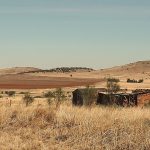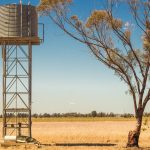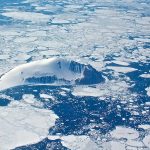 December 3, 2018 3:48 pm
Published by Climate Extremes
December 3, 2018 3:48 pm
Published by Climate Extremes
The Heatwaves and Cold Air Outbreaks Research program has been very active, producing a considerable number of papers over the past four months.
 November 30, 2018 11:01 am
Published by Climate Extremes
November 30, 2018 11:01 am
Published by Climate Extremes
The Drought program has been strongly focused on evaluating and improving climate models, and developing a drought database for documenting drought and for benchmarking model performance.
 November 29, 2018 11:00 am
Published by Climate Extremes
November 29, 2018 11:00 am
Published by Climate Extremes
CLEX PhD student Earl Duran presented his work on the South Australian Current System at ACOMO 2018 held this year at the Shine Dome, Canberra, ACT.
 November 27, 2018 11:45 am
Published by Climate Extremes
November 27, 2018 11:45 am
Published by Climate Extremes
James Goldie has created the Collateral package to ease the pain of debugging. You can repeat a potentially risky operation—building a statistical model, rendering a plot, computing a tricky index—on as many groups of data as you want, and collateral will quickly show you which groups ended with errors, which ones returned results, and which ones finished but printed warnings or other messages.
 November 27, 2018 10:32 am
Published by Climate Extremes
November 27, 2018 10:32 am
Published by Climate Extremes
Bella Blanche writes about spending time on the vast Macfarlane Station in Tambo, Queensland and introduces a methodology to assess risks posed by climate change, and the vulnerability of the native rangeland resources located west of the Great Dividing Range.
 November 6, 2018 9:49 am
Published by Climate Extremes
November 6, 2018 9:49 am
Published by Climate Extremes
Urban Climate and Energy Model (UCLEM) is a new climate model focused on Australian conditions that integrates energy use and human behaviour to generate accurate representations of urban climates.
 October 9, 2018 12:50 pm
Published by Climate Extremes
October 9, 2018 12:50 pm
Published by Climate Extremes
Deep ocean reefs are likely to transform with global warming bringing together species from temperate and tropical waters that may have never coexisted before, according to new research published in Nature Climate Change.
 October 8, 2018 2:53 pm
Published by Climate Extremes
October 8, 2018 2:53 pm
Published by Climate Extremes
CLEX researchers find that ocean sea-ice models generally agreed on changes to average yearly cycle of freeze and melt in Antarctica, with dynamic processes dominating the sea ice edge and thermodynamic processes dominating the interior of the sea ice pack. However, the models disagreed about the trends of sea ice volume.
 October 8, 2018 12:09 pm
Published by Climate Extremes
October 8, 2018 12:09 pm
Published by Climate Extremes
An unusually strong East Australian Current extension leads to an increased probability of marine heatwave days around Tasmania. Conversely, a strong Zeehan Current during these seasons decreased the probability of marine heatwave days in this region.
 October 5, 2018 2:15 pm
Published by Climate Extremes
October 5, 2018 2:15 pm
Published by Climate Extremes
The Extreme Rainfall Research Program of the Centre of Excellence for Climate Extremes (CLEX) held a workshop on October 4 at the University of New South Wales (Sydney). There were 30 participants representing the CLEX nodes, Bureau of Meteorology, CSIRO, NSW Office of Environment and Heritage and National Centre for Atmospheric Research.










